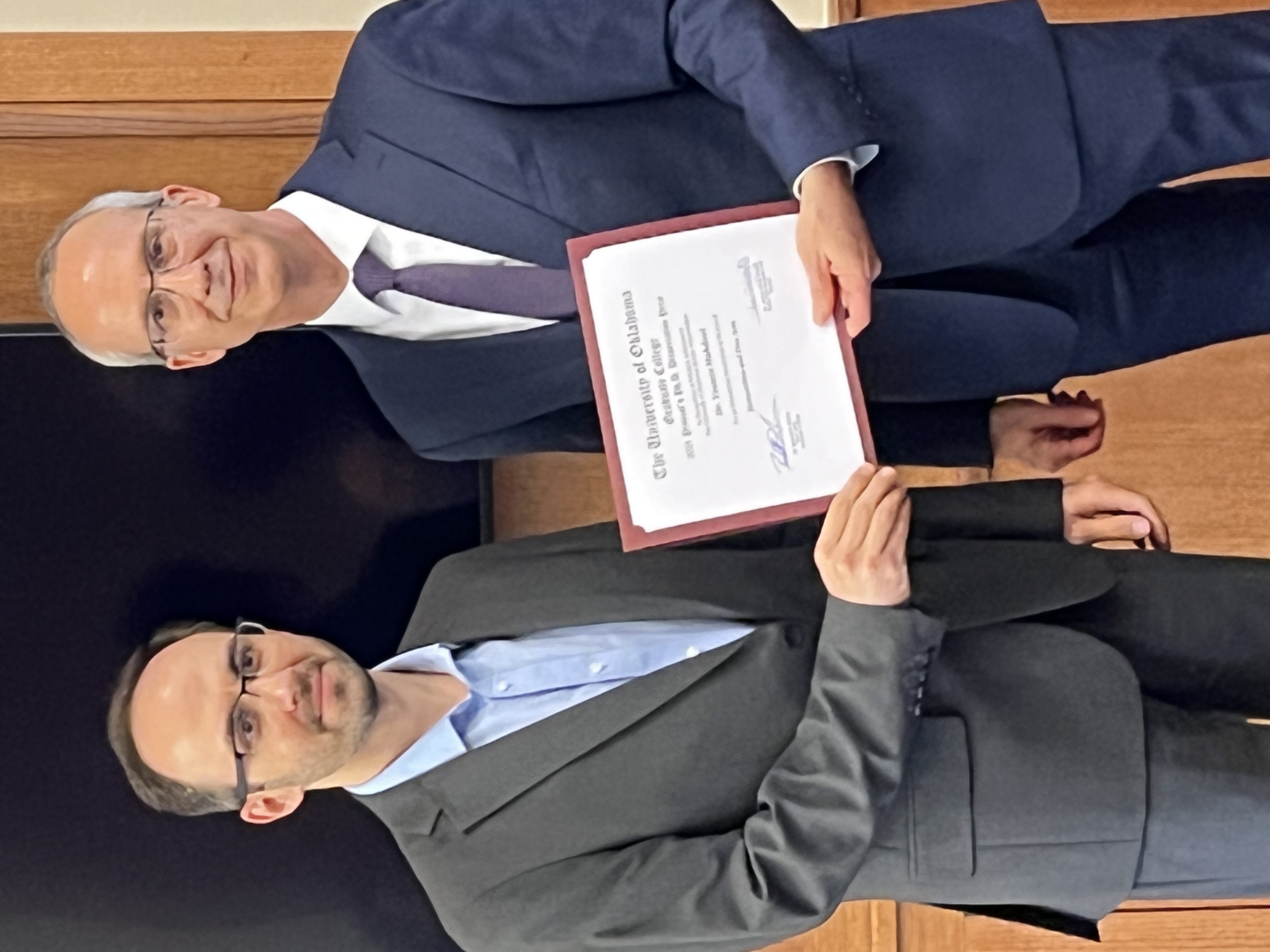Younes Mahdavi Awarded Dissertation Prize

Randall Hewes, Dean of the Graduate College, presents Younes Mahdavi with the 2021 Provost's Ph.D. Dissertation Prize for Outstanding Dissertation in the Humanities and Fine Arts.
At a ceremony on 28 April 2022, Randall Hewes, Dean of the Graduate College, presented Younes Mahdavi with the 2021 Provost's Ph.D. Dissertation Prize for Outstanding Dissertation in the Humanities and Fine Arts.
"I am so glad and surprised my research gained attention from other scholars, something I did not expect," Mahdavi said.
Mahdavi also shared his dissertation abstract:
"This dissertation offers the first account of a scientific tradition in theoretical astronomy (ʿilm al-hayʾa) initiated by Bahāʾ al-Dīn al-ʿĀmilī (1547-1621), a polymath and a chief jurisconsult in the Safavid monarchy (1501-1722) in Persia. ʿĀmilī’s campaign to acquire royal patronage, depended on multiple rededications of an introductory work on astronomy, The Dissection of the Orbs (Tashrīḥ al-aflāk), composed before 1576. The last shah to receive this dedication was ʿAbbās I (r. 1588-1629), who raised ʿĀmilī to the position of chief jurisconsult for the Safavid empire in 1001/1592-3. ʿĀmilī’s new position at the imperial court enabled him to legitimize astral sciences among the Safavids, for example, in The Crescent Garden (al-Ḥadīqa al-hilāliyya) completed in 1595. He also completed an extensive Gloss on the Dissection and began to train students in astronomy before 1599. The active research tradition in ʿilm al-hayʾa founded by ʿĀmilī was continued by his disciples and subsequent scholars in Persia and Mughal India in commentaries that make use of the Gloss and the Dissection. ʿĀmilī and his commentators continued the scientific tradition of Marāgha and Samarqand. They differed from earlier scholars in accepting the work of another Safavid scholar, Shams al-Dīn Khafrī (d. after 1525), as the solution to the canonical list of problems in Ptolemaic astronomy, although there is evidence that ʿĀmilī proposed new models for the problematic cases of Mercury and the Moon. Original research material in this period appeared in the form of commentary and super-commentary literature on contemporary and previous authorities in astronomy."

